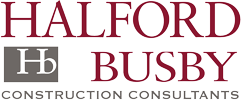 Leadership in Energy and Environmental Design, more commonly referred to as LEED, is a certification program that encourages energy efficiency and environmental responsibility for new construction projects in the U.S. Working with a construction project management company that understands the requirements for LEED building methods can help you to achieve these sought-after certifications in the most affordable and practical ways possible. Here are some of the most commonly asked questions about LEED certification and what it means for modern construction companies.
Leadership in Energy and Environmental Design, more commonly referred to as LEED, is a certification program that encourages energy efficiency and environmental responsibility for new construction projects in the U.S. Working with a construction project management company that understands the requirements for LEED building methods can help you to achieve these sought-after certifications in the most affordable and practical ways possible. Here are some of the most commonly asked questions about LEED certification and what it means for modern construction companies.
How Does LEED Certify Buildings?
Construction project management buildings can earn points toward LEED certification levels by incorporating green-friendly building methods or elements into their overall design and construction. Depending on the number of points accrued, LEED certifies buildings and projects at four different levels:
- Projects that earn between 40 and 49 points receive Certified status from LEED.
- Silver certification status is awarded to projects that earn between 50 and 59 points.
- Gold status requires that building projects earn between 60 and 79 points.
- Platinum is the highest certification status awarded by LEED and requires projects to earn 80 points or more.
Certain prerequisites may be required to qualify for LEED certification. These prerequisites do not count toward the points needed to achieve certification. Instead, they are considered part of the overall qualification process for building projects. Some of the most common prerequisites include the following:
- The establishment of policies governing site management, facility maintenance, purchasing and waste management
- Reduction of indoor water use
- Management of refrigeration methods, energy consumption and efficiency and indoor air quality
Construction projects can also earn credits by taking steps to reduce the environmental impact of their projects, investing in renewable energy sources, purchasing carbon offsets, making green-friendly purchasing decisions and improving the quality of indoor air through targeted building management activities. Working with a firm that provides construction cost management services can help you determine which of these credits provide the most cost-effective pathway to LEED certification for your building project.
What Are the Benefits of LEED Certification?
LEED certification can serve as a strong selling point for tenants and purchasers in the commercial real estate marketplace. Owners of LEED-certified buildings may be able to qualify for lower insurance rates, tax rebates and other incentives. The energy-efficient features integrated into LEED-certified properties can also reduce utility costs for tenants and property owners alike.
At Halford Busby, we offer customized construction scheduling services and guidance for companies seeking LEED certification for their projects. We work with your company to determine the most cost-effective strategies for achieving LEED certification for your building. Call us today at 281-920-1100 to learn more about how our team of consultants can assist you in your construction efforts. We look forward to working with you.


